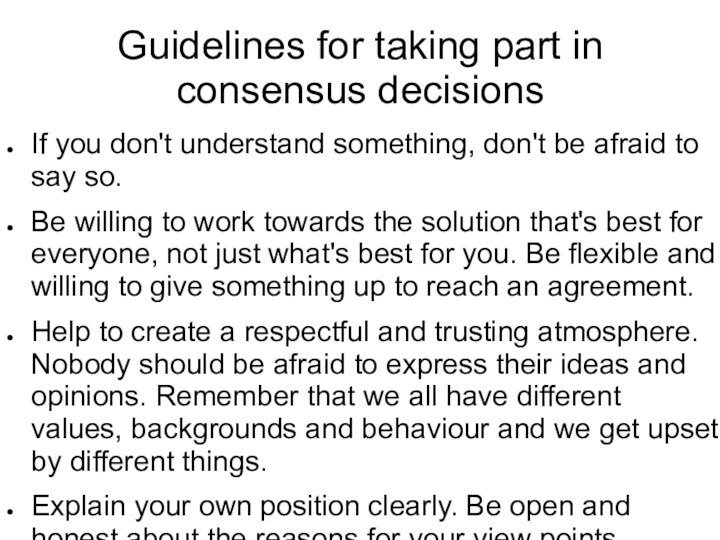don't understand something, don't be afraid to say so.
Be
willing to work towards the solution that's best for everyone, not just what's best for you. Be flexible and willing to give something up to reach an agreement.Help to create a respectful and trusting atmosphere. Nobody should be afraid to express their ideas and opinions. Remember that we all have different values, backgrounds and behaviour and we get upset by different things.
Explain your own position clearly. Be open and honest about the reasons for your view points. Express your concerns early on in the process so that they can be taken into account in any proposals.
Listen actively to what people are trying to say. Make a deliberate effort to understand someone's position and their underlying needs, concerns and emotions. Give everyone space to finish and take time to consider their point of view.
Think before you speak, listen before you object. Listen to other members' reactions and consider them carefully before pressing your point. Self restraint is essential in consensus - sometimes the biggest obstacle to progress is an individual's attachment to one idea. If another proposal is good, don't complicate matters by opposing it just because it isn't your favourite idea! Ask yourself: “Does this idea work for the group, even if I don't like it the best?” or “Are all our ideas good enough? So does it matter which one we choose?”
Don't be afraid of disagreement. Consensus isn't about everybody thinking the same thing. Differences of opinion are natural and to be expected. Disagreements can help a group's decision, because with a wide range of information and opinions, there is a greater chance the group will find suitable solutions. Easily reached consensus may cover up the fact that some people don't feel safe, or confident enough to express their disagreements.




































